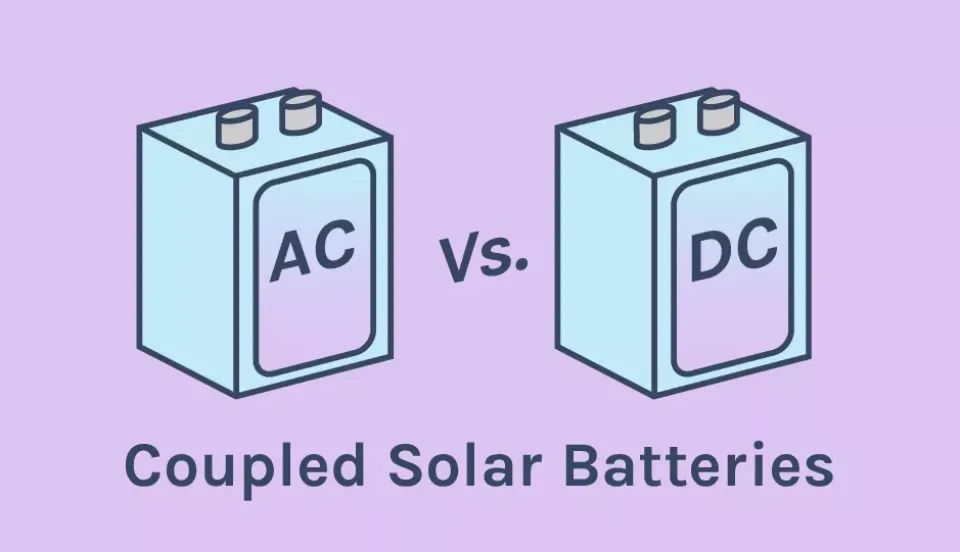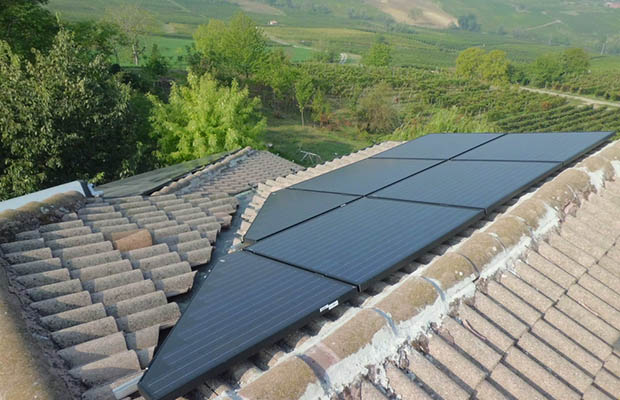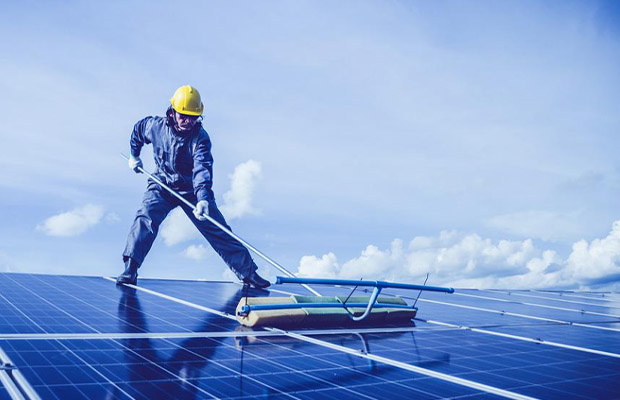There are many factors that determine whether AC or DC coupling is best suited to a given application, so it’s important to understand the difference between DC coupled vs AC coupled.
The method by which solar panels are connected to and communicate with a battery system is referred to as AC or DC coupling.
In this article, we compare the relative benefits and drawbacks of two popular solar-plus-storage system architectures: ac-coupled energy storage systems (ESS) and dc-coupled ESS.
Table of Contents
DC-Coupled Systems
DC-coupled systems rely only on a single multimode inverter that is fed by both the PV array and ESS. DC output power from the PV modules can directly charge the ESS thanks to this system architecture. Between the PV array and ESS, no dc-to-ac conversion is needed.
The multimode inverter is placed downstream from the main service panel and backup loads panel, both of which need ac power. The microgrid interconnect device, which is frequently built into multimode inverters, will typically cut off the output of the multimode inverter to the main service panel in the event of a power outage, but the inverter will continue to provide ac power to the backup loads panel.
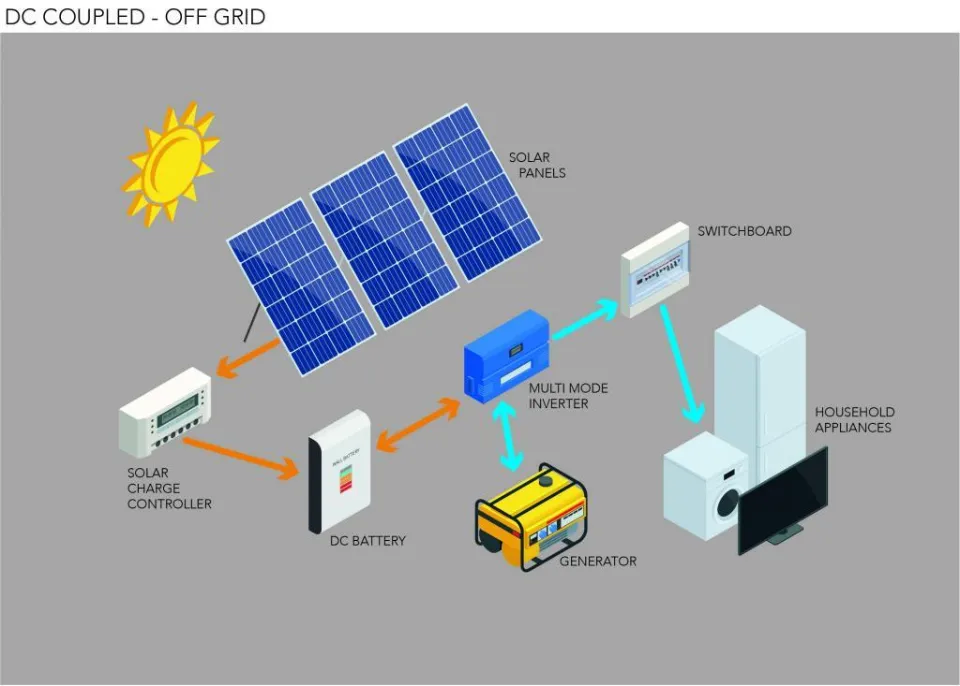
Advantages of DC Coupling
Efficiency
A dc-coupled system is more efficient when power is sent through the ESS (for example., when the Since there is only one conversion from dc to ac—a single inverter, rather than two—to pass through, ESS is directly charged and discharged at a later time.
Full PV Array Power
In typical interactive and ac-coupled systems, inverters are downsized on the grounds that the PV array will rarely, if ever, produce at its nominal rating. Think about a 5kW photovoltaic array connected to a 4kW interactive inverter, as an illustration. This hypothetical system is now restricted to a maximum power output of 4kW.
An interactive inverter is not required for dc-coupled systems in order to supply the ESS with enough power. Returning to the hypothetical system above, but without the interactive inverter this time, a theoretical maximum of about 5kW could be used to charge the without any power restrictions, feed the ESS and/or the multimode inverter.
Direct Charging
Ac-coupled systems are susceptible to low battery voltage conditions. An excessive amount of energy drawn from the battery bank during an outage could shut down the multimode inverter, the interactive inverter, and the PV array. System owners may have to wait for grid power to resume before the system can be turned on because the PV array is unable to directly charge the batteries in this situation.
On the other hand, a dc-coupled system can continuously transmit power (during the day) from the PV array to the ESS. The unencumbered pathway between the PV array and battery bank allows the battery voltage to rise and thus the multimode inverter can turn back on and supply power to the backed-up loads without having to wait for the grid power to return.
Read More: Charging RV Batteries With Solar
AC-Coupled Systems
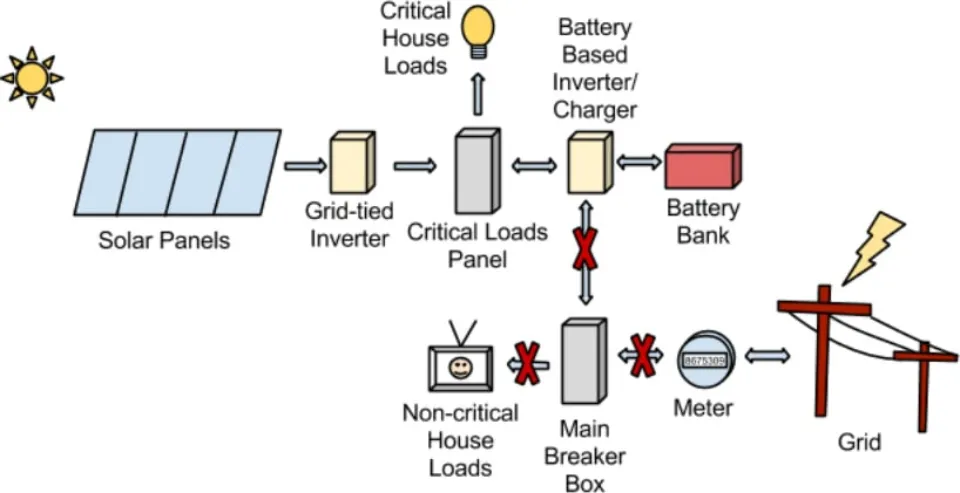
PV cells will generate direct current power. The majority of commercial and residential applications require that power to be converted to ac. In contrast, battery cells produce dc power and must be charged with dc. Significant system design implications stem from the ac-dc distinction.
In a AC coupled system, power from the PV modules is converted to ac prior to connecting to the ESS. In other words, the output from the PV modules is fed through an interactive inverter before it reaches the This means that any power output from the ESS must be converted back to ac before it can be used again. An additional multimode inverter is necessary to accomplish this.
Advantages of AC Coupling
Retrofits
It is not unusual to add an ESS to an existing grid-tied interactive PV system. For system designers, this can be a headache, and frequently, ac-coupling the new ESS is the simplest option.
The above ac-coupled system and the straightforward interactive PV system can be compared. Notably, the PV side of the system is the same in both scenarios. AC coupling will add a backup loads panel and multimode inverter but, crucially, the existing PV system does not need to be redesigned.
Higher Inverter Capacity
A dc-coupled system is constrained by the capacity of the single multimode inverter it depends on. AC-coupled systems have two inverters (one interactive and one multimode), both of which feed the backup loads panel. So if an outage occurs while the sun is still shining, the backup loads panel can have the kW capacity of both inverters available.
Redundancy
PV system designers should think about potential failure points, just like with any electrical system. If the battery-based multimode inverter in an ac-coupled system is disabled, a straightforward bypass switch will keep the PV array and interactive inverter online (as long as the grid is up). DC-coupled systems, on the other hand, rely on a single multimode inverter as the central component of the system architecture, so this is not the case.
Efficiency
Compared to multimode inverters, interactive inverters typically have higher efficiency. If the sun is out and the energy produced is used up right away (i.e., the power output from the An ac-coupled system architecture will be more effective than a dc one if the PV array is directly feeding the loads rather than using the multimode inverter to charge the ESS.
DC Coupled Vs AC Coupled: What Are the Differences?
The main distinctions between DC coupling and AC coupling are listed below.
1. DC-Coupled PV Systems Are Better for Battery Storage
For greater self-consumption and to lessen power outages, more homeowners are choosing to integrate battery storage into their solar energy systems. DC electricity makes sense for the battery storage system because solar panels generate DC and batteries store DC energy.
In an AC-coupled system, the energy produced by the solar panels is converted to AC, then to DC for storage in the battery, and then back to AC for use in the house. There is some energy loss during every conversion.
Imagine having to exchange your money into a foreign currency, then back again, in order to buy a car. Transaction fees are incurred with each conversion. An AC-coupled system causes that to occur.
The energy is only converted once in DC-coupled PV systems. The PV system as a whole is more affordable and effective because only one solar inverter is needed, which also makes installation easier and lowers hardware costs.
2. DC-Coupled Inverters Are Better for Oversizing
Oversizing occurs when the amount of solar energy generated exceeds the inverter rating of the system. This means that you can increase the number of solar panels on your rooftop and still use the same inverter to produce more power. When a PV system is oversized, the extra solar energy that hasn’t been used by your home can be used to charge other devices like a home battery, an EV charger, a water heating system, and more. With an AC-coupled system, some of this additional “oversized” energy is simply lost.
As a result of their ability to accommodate greater oversizing and excess energy storage, DC-coupled inverters can help you save more money.
3. Using DC-Coupled Solar to Power Your Smart Energy Devices
Homeowners are noticing significant changes in their electricity bills as a result of the increasing energy needs and smarter homes. For instance, did you know that charging your EV can result in a 50% or higher increase in your overall electricity use. (*Source: HEA: SolarEdge)
Homeowners can activate smart energy devices and charge their EV from the sun by using a DC-coupled PV system, such as a SolarEdge smart energy solution, while significantly lowering their electricity costs.
Conclusion on DC Coupled Vs AC Coupled
In reality, there is no such thing as a correct or incorrect response. The most effective strategy will always depend on the application because both methods have advantages.
So what is your choice after reading our post, DC coupled or AC coupled? Post a comment below and let us know what you think!
Read More: How Long Do Solar Batteries Last?

